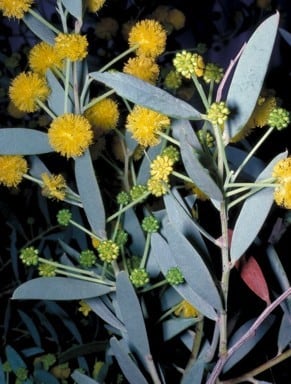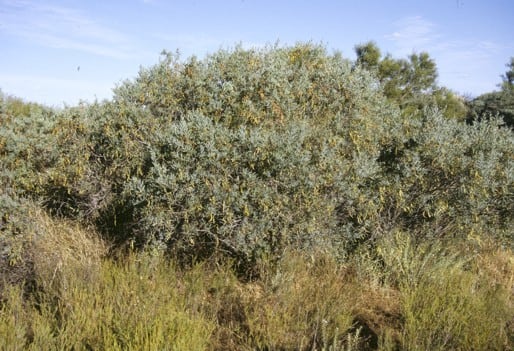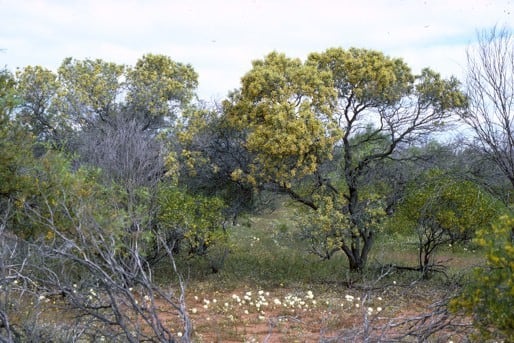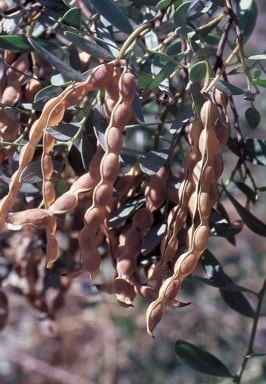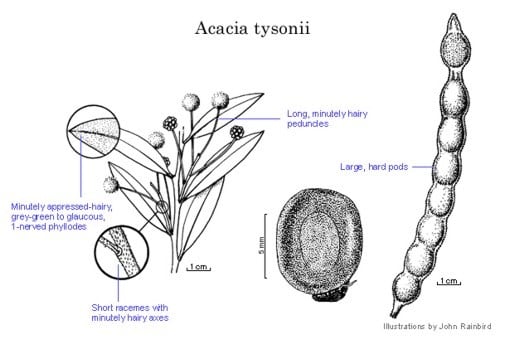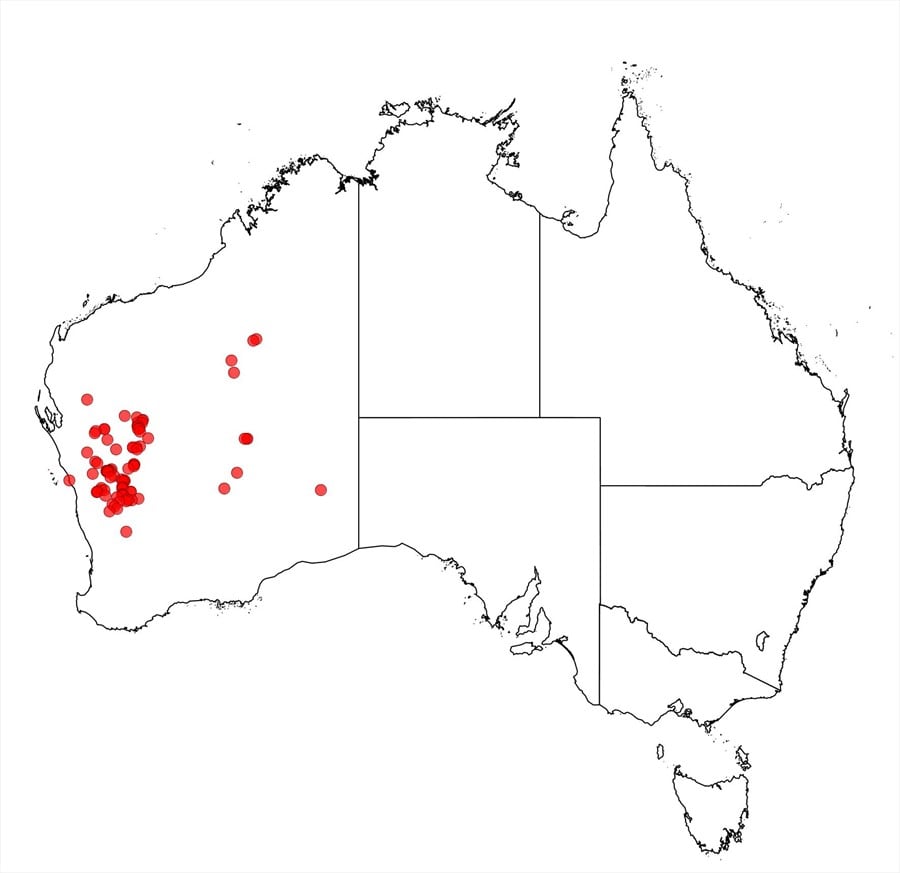Acacia tysonii Luehm.
WATTLE
Acacias of Australia
Common Name
Tyson’s Wattle
Family
Fabaceae
Distribution
Occurs from Gascoyne Junction and Peak Hill S to Morawa and Mouroubra, W.A. Possibly also from Lake Auld on the edge of the Great Sandy Desert (see below).
Description
Compact, rounded shrub to 3 m high, or tree to 6 m. Branchlets normally appressed-puberulous. New shoots pale yellow (at least when dry), ageing silvery due to indumentum. Phyllodes narrowly elliptic to narrowly oblong, 2–4.5 (–5.5) cm long, 4–10 mm wide, l:w = 4–7, obtuse, ±thin, smooth, grey-green to glaucous, finely appressed-puberulous, 1-nerved; midrib and marginal nerves prominent; lateral nerves often obscure; gland 1–5 mm above pulvinus, and rarely also at base of mucro. Inflorescences 2–4-headed racemes; raceme axes 5–20 mm long, puberulous, growing out or often the distal peduncles subtended by young phyllodes; peduncles 10–25 (–30) mm long, puberulous; heads globular, subdense, 25–30-flowered, bright golden. Flowers 5-merous; sepals united into a ± truncate calyx. Pods moniliform, 5–10 cm long, 8–13 mm wide, crustaceous, smooth, red to dark brown, sparsely and minutely appressed-puberulous. Seeds longitudinal, spherical, compressed, 7–8 mm long, dull, brown; aril hemispherical, dark red (dry).
Habitat
Grows in sand, loam and clay, usually associated with calcrete or limestone in shrubland.
Specimens
W.A.: W of Mt Magnet, A.M.Ashby 5227 (BRI, MEL, NSW, PERTH); Ninghan Stn, between Wubin and Paynes Find, B.R.Maslin 4237 (CANB, PERTH).
Notes
A sterile specimen from Lake Auld (A.S.Mitchell 1070, DNA, PERTH) is possibly this species. Besides being distributionally anomalous it is distinctive in its small (20–25 x 4–5 mm), acute phyllodes with 2–4 rather prominent marginal glands.
A member of the ‘A. bivenosa group’, fide A.R.Chapman & B.R.Maslin, Nuytsia 8: 279 (1992). It resembles A. sclerosperma subsp. glaucescens which has a more coastal distribution and which differs in its indumentum, gland number, inflorescences and size of pods and seeds. Specimens with longer and thicker than normal phyllodes from around Glenburgh and Meka Stns, W.A., may be hybrids with A. ligulata.
FOA Reference
Data derived from Flora of Australia Volumes 11A (2001), 11B (2001) and 12 (1998), products of ABRS, ©Commonwealth of Australia
Author
A.R.Chapman
B.R.Maslin
Minor edits by J.Rogers
This identification key and fact sheets are available as a mobile application:
URL: https://apps.lucidcentral.org/wattle/
© Copyright 2018. All rights reserved.
